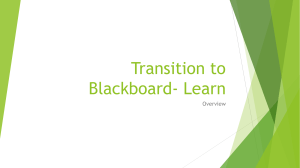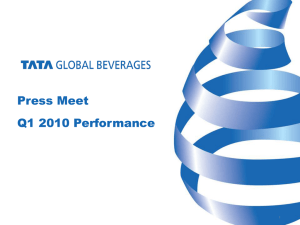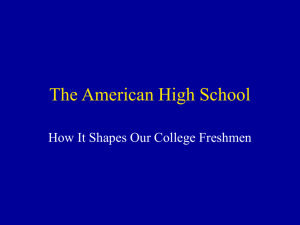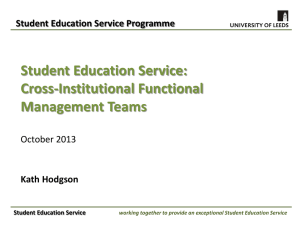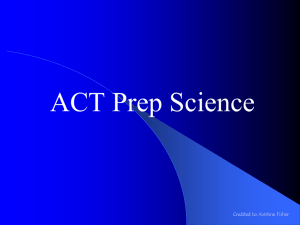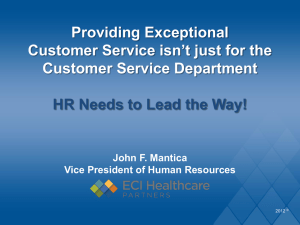Teacher Preparation PowerPoint
advertisement
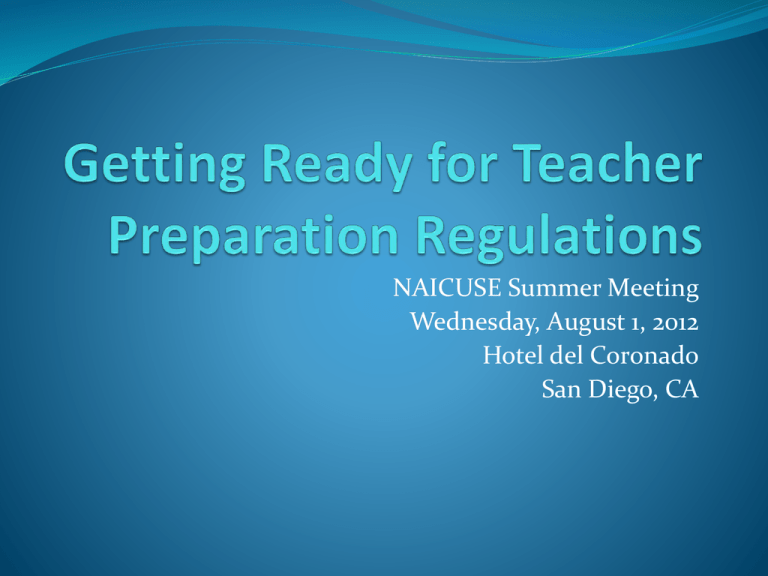
NAICUSE Summer Meeting Wednesday, August 1, 2012 Hotel del Coronado San Diego, CA Basic DC Views of Teacher Prep Negative perception of teacher programs is not new Not going to blame teachers, but programs No recognition of improvements in the field Alternative routes are better Think tanks have better accountability proposals NCLB/ESEA Delay Congressional inaction on ESEA reauthorization House committee Senate committee Administration MO to legislate through regulatory process K-12 Reform Meets Higher Ed 2009 Stimulus bill got feds more into state policy Race to the Top MOE State longitudinal databases K-12 reform model applied to higher education: Data-driven system National standards at state level Outcomes based quality States as federal agents of change 50-state pilot 2012 Negotiated Rulemaking Title II Report Cards and TEACH Grants No consensus Anticipate NPRM this summer? This calendar year? NAICU represented at the table Practitioners v. reformers 4 Major Concerns “Value-added" assessments Federally-mandated state criteria for teacher program assessment Rating programs based on the federally-mandated state criteria Precedent setting link between student aid eligibility and program quality Weeds New Part Title II Reporting 612.4 State Report Card Requirements Using a state report card prescribed by the Secretary, states must report on the quality of all approved teacher preparation programs. States must make meaningful differentiation in teacher preparation performance using at least four performance levels: low-performing, atrisk, effective and exceptional, based on the indicators in 612.5 including a significant part, student learning outcomes. Effective or exceptional can only be with satisfactory or higher student learning outcomes. 612.5 Indicators: provide disaggregated data on academic content knowledge and teaching skills must include at a minimum: - student learning outcomes - employment outcomes - survey outcomes - assurance of specialized accreditation or state approval that the program provides quality clinical preparation; content and pedagogical knowledge; rigorous entry and exit qualifications; and student survey results. New Title IV TEACH Grant language 686.2 TEACH Grants are available to high quality teacher preparation programs, which is an effective or exceptional program based on the state’s analysis of the criteria in 612.5. Proposed Link Among TEACH Grants, State Report Card Ratings and Title IV Eligibility State Report Card Institution Ratings TEACH Grant ( Proposed (Title IV) Title II 612.4 Regs) Eligible for Title IV Aid Exceptional High Quality (as defined in 612.4) Teacher Prep Program reports because has students with Title IV aid Effective Only student at High Quality Programs get TEACH At-Risk Law No Title IV aid for students in Teacher Prep Program Low-Performing* Regulation Both *Low-performing is defined in law, “solely by the state.” Proposed regs provide a federal definition. Why this makes us nervous Precedent setting for federal funding and regulation Shift away from need-based to quality-based federal student aid Administration’s Campus-Based Aid Proposal Creep into other program areas Accreditation as tool of government oversight rather than self-regulation Frames next HEA reauthorization What we’re for Accountability based on valid and reliable research Evaluations made using multiple measures No high stakes consequences before measures proven valid Data for improvement purposes All programs should be held to the same standards State responsibility, not federal mandate NAICU Action Plan NAICU Teacher Prep List Serve NAICU membership heads up on NPRM Higher Ed Task Force on Teacher Prep with AACTE Hill visits with education committee staff Legislative alternatives How NAICUSE Can Help Share your state story Local Press and national op-eds Congressional delegation Share your good examples with NAICU State reforms Improvements and reforms at your colleges Privates working with LEAs Self-regulation (state approval process; accreditation; internal program review, etc.)

